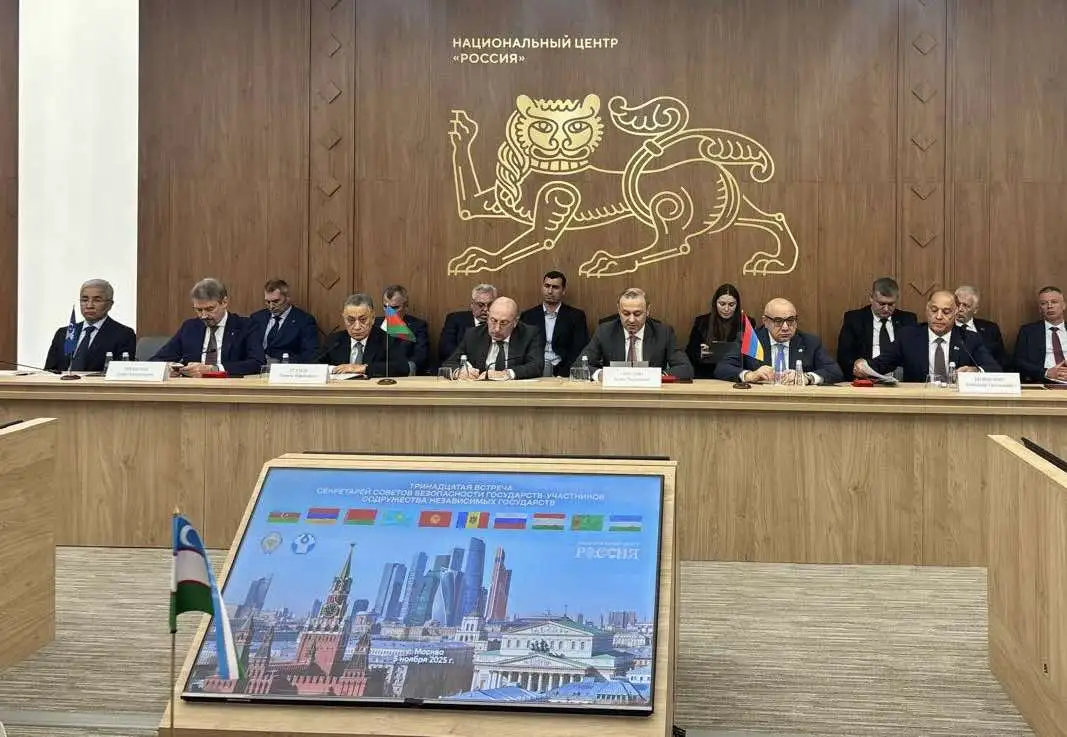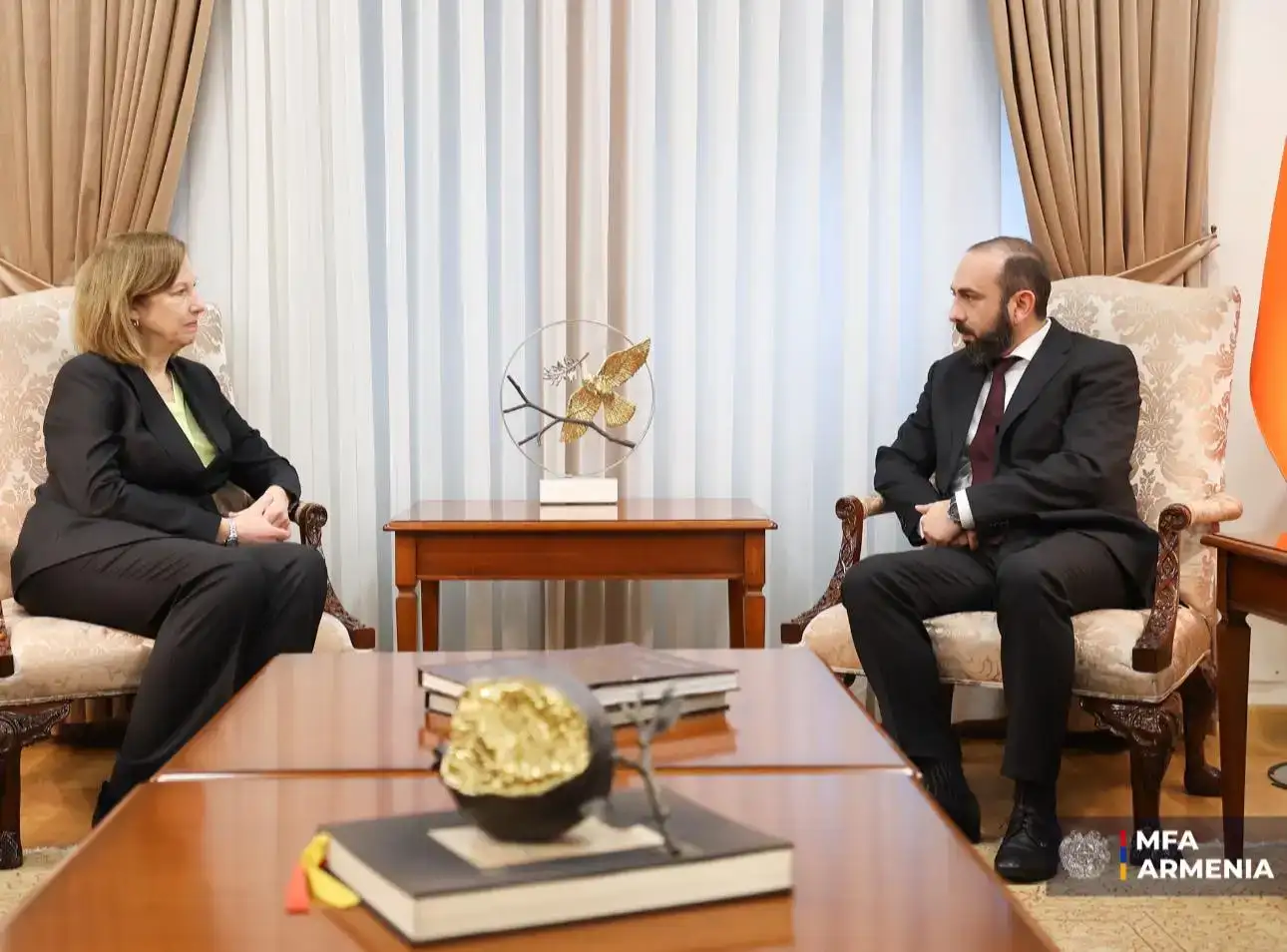On November 5, the Secretary of the Security Council of the Republic of Armenia, Armen Grigoryan, participated in and delivered a speech at the 13th meeting of the Secretaries of the Security Councils of the CIS member states in Moscow.
"First of all, let me express my gratitude to the Russian side and, in particular, Sergey Kuzhugetovich, for organizing this important meeting at a high level, the purpose of which is to discuss fundamental issues related to the future of security, stability, and development of our region and the entire CIS territory.
The Commonwealth of Independent States has been a vital platform for dialogue, cooperation, and mutual assistance between our countries for over three decades. Over these years, the CIS has played a significant role in strengthening mutual understanding, coordinating efforts in the security sphere, and developing economic and humanitarian cooperation.
In the face of modern challenges and a rapidly changing external environment, our regions are faced with the task of ensuring stability, strengthening trust, and fostering mutually beneficial cooperation. In this regard, the meetings of the Secretaries of the Security Councils of the CIS member states provide an opportunity to develop strategic approaches aimed at protecting the interests of our peoples and ensuring the development of our states.
The dialogue within the CIS is of particular importance for Armenia, serving as a crucial platform for discussing issues of security, interconnectedness, and sustainable development. This platform enables us to develop standard mechanisms that aim to strengthen peace and trust, as well as address problems that require a collective approach and mutual understanding.
The South Caucasus region is undoubtedly experiencing a period of significant change, both politically, infrastructurally, and ideologically. I would like to especially emphasize the historic event that took place on August 8, 2025, at the White House, where a meeting was held among Armenian Prime Minister Nikol Pashinyan, Azerbaijani President Ilham Aliyev, and US President Donald Trump. As a result of the Washington Agreement, peace has been established in the South Caucasus, and now we are working towards the institutionalization of peace with Azerbaijan.
One of the components of institutionalization is the signing and ratification of the "Peace Treaty" by the two countries. Another critical component is the unblocking of communications, which will create economic interdependence in the region and, in turn, contribute to the consolidation of peace.
The signing of the Joint Declaration between Armenia and Azerbaijan, which confirms the aspiration for peace and the normalization of relations, has become an essential milestone on the path to achieving our long-awaited peace. We reaffirmed our commitment to the principles of sovereignty and territorial integrity.
The 1991 Alma-Ata Declaration, which is the founding document of the CIS, also played a key role in shaping the foundations of today's process. On this basis, we continue to build our cooperation. It is essential to emphasize that, in the current context, we must also build upon these fundamental principles, as Armenia and Azerbaijan do, by respecting each other's territorial integrity, as outlined in the Alma-Ata Declaration.
Today, as the South Caucasus gradually frees itself from the heavy legacy of military conflicts and shifts from a logic of conflict to one of cooperation, new horizons for peaceful and sustainable development are emerging.
I would like to especially emphasize the agreement reached within the framework of the Washington Agreement on the opening of communications, as well as the TRIPP program - "Trump's Path to International Peace and Prosperity." Currently, Armenia is actively discussing the details of the TRIPP program with the United States, and in the near future, it will be possible to begin practical work.
This project is unique in its scale and significance, as it aims to create conditions where transport and communication routes are used not as tools of competition but as an environment for cooperation and mutual prosperity. We observe not only positive dynamics in the field of infrastructure, but also in the development of humanitarian ties and mutual trust in this step.
One of the most critical components of this process is the unblocking of transport and communication routes, which is not just an infrastructural issue but a strategic step towards ensuring sustainable and long-term security. This is especially important because Armenia and its neighboring countries have significant development potential, and the unblocking of communication routes enables us to achieve more than just improving transport communications. In this new phase, one of the most critical factors is the inclusiveness of all parties.
Within the framework of the TRIPP program, we strive to create an environment of genuine cooperation and mutual benefit. This program aims to form ties not only between Armenia and Azerbaijan, but also with other CIS countries, ensuring the integration of Armenian transport routes into broader networks, including the Eurasian space. This opens up new opportunities for trade, logistics, and the movement of people, while contributing to the strengthening of interdependence — a crucial factor in ensuring security.
Following the signing of the August 8 agreement, efforts are underway to establish contacts between the civil societies of Armenia and Azerbaijan. Thus, on October 21-22, a visit of an Azerbaijani civil society delegation took place in Yerevan, the purpose of which was to activate contacts between the two societies. We are convinced that such mutual visits should continue and include new layers, which will contribute to the preservation and strengthening of peace.
Thus, the unblocking of communications, the development of people-to-people contacts, the activation of dialogue, and the institutionalization of peace are key elements that make stability irreversible and form the basis for the prosperity of the entire region. We are open to dialogue, ready to work in a spirit of mutual respect, and strive for our cooperation to not only bring concrete results but also set an example for other regions that have yet to follow a similar path.
Today's meeting will be a crucial step on the path to creating a more peaceful, interconnected, and secure region that serves the well-being of all peoples and states within the CIS. Thank you for your attention."




















